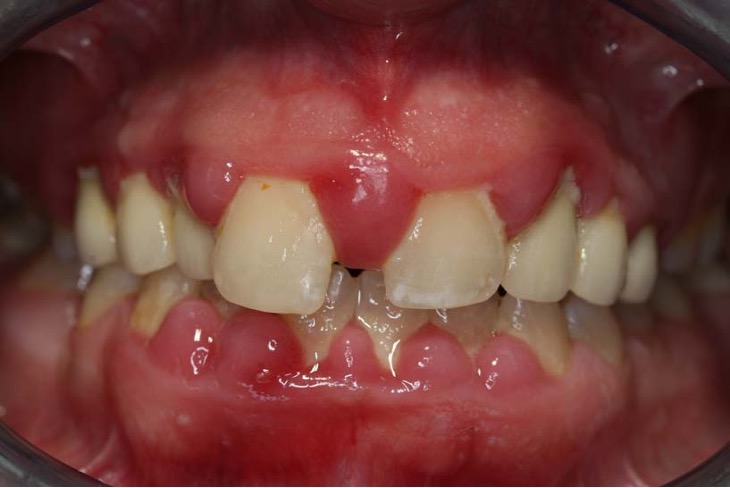The mouth is the gateway to your overall health. The condition of the mouth gives the dentist a guide as to the health of other organs. Also, the mouth has interesting facts that support it complex functions.
In this column, we will discuss four interesting facts about the mouth that you probable never knew.
Without saliva, we would be unable to taste anything. Its main role includes transport of taste substances and protection of taste receptors. In the initial process of taste perception, saliva acts as a solvent for taste substances while salivary water dissolves taste substances.
Saliva is necessary for digestion, antibodies, lubrication and tasting. Saliva contains special enzymes that help digest the starches in the food. An enzyme called amylase breaks down starches (complex carbohydrates) into sugars, which the body can more easily absorb. Also, saliva contains an enzyme called lingual lipase, which breaks down fats. We produce about 37,854 litres of saliva during our lives – enough to fill two swimming pools.
The inside of your mouth contains as many bacteria as there are people on earth. Over 6 billion including 700 different species, reside inside the mouth. Some promote health, others provoke disease. About 20 species of bacteria are considered “bad” bugs because they cause disease. The mouth is a complex colony with lots of communication between bacteria of the same and different species. When your teeth feel slimy and gooey, there is a heavy presence of bacteria. Brushing should be done to eliminate this bacterial layer.
Also, oral bacteria thrive inside the cheeks and on the tongue, palate, tonsils and gums. The mouth is a great attracter. It’s constantly moist, has a fairly neutral pH and a clammy temperature. But despite this perfect environment, not all the germs in the mouth stay in one area. Roughly 24 oral species are associated with disease or conditions that affect other areas of the body.
Millions of bacteria are swallowed that end up in the gut. Also, the bloodstream is a convenient form of transport. Each time a person chews, brushes, or floss, these germs get pushed into small vessels in your gums. When gum disease begins bacteria gets into the blood stream. When bacteria get into the bloodstream, it travels to organs throughout the body; including the brain, kidneys, heart and placenta during pregnancy.
Many diseases are linked to oral health; including heart disease, diabetes and osteoporosis. Periodontal (gum) disease is estimated to affect nearly half the population over age 30 and is the major cause of adult tooth loss. Numerous studies have shown that patients with severe periodontal disease are at increased risk for developing cardiovascular disease, diabetes, osteoporosis, rheumatoid arthritis, low birth weight babies and bacterial pneumonia
In the majority of these cases, the spread of the infection is linked to the bacteria moving through the blood stream. This infection is called a bacteremia. The result is injury and stress to the immune system making one susceptible to viruses, like Covid-19.
Baby teeth start developing while in the womb. At about 5 weeks of pregnancy, the first buds of primary teeth appear in the baby’s jaws. At birth, the baby has a full set of 20 primary teeth (10 in the upper jaw, 10 in the lower jaw) hidden under the gums. Primary teeth are also known as baby teeth, milk teeth or deciduous teeth. They don’t emerge through the gums until you are between 6 – 12 months old. Children have 20 teeth while adults have 32. A child’s full set of teeth come in by age three. When baby teeth begin pushing their way up through the baby’s gums, it can prove to be a very stressful time for both parent and child. Common baby teeth eruption symptoms are inflamed gums, excessive drooling, chewing on things and irritability. It’s important to patient with the child during this time and maintain proper infant oral hygiene.
We have discussed four facts associated with the oral cavity. The oral cavity is a unique and complex organ that serves as a predictor of your overall health. Visit your dentist to prevent disease and unnecessary pain and suffering. Remember, a healthy mouth is a healthy body. Seek good information that promotes proper oral health.
Dr. Kendal V. O. Major is Founder and CEO of Center for Specialized Dentistry which is a comprehensive family dental practice operating in Nassau and Freeport. He is the first Bahamian Specialist in gum diseases and dental implants since 1989. He also is a certified Fastbraces provider. His practice is located at 89 Collins Avenue, Nassau at (242)325-5165

Note severe cavity on 1st molar of child tooth. Also see permanent tooth coming up

Millions of mouth bacteria creating severe gum disease and an infection in the blood.

Areas on top of tongue showing areas of taste buds for bitter, sour, salty & sweet





